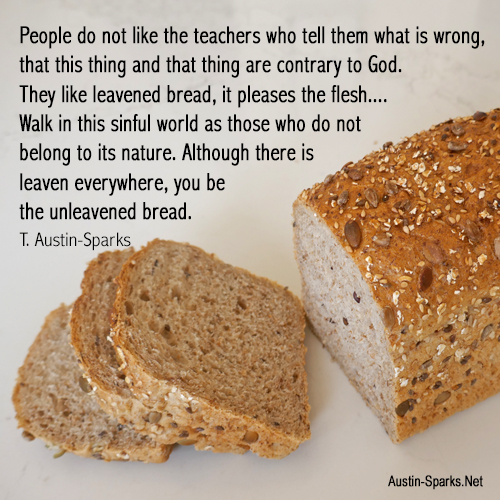
They prepare the table, they spread the rugs, they eat, they drink. Arise, O princes; oil the shield! --Isaiah 21:5
If you look up the word "anoint" in The Illustrated Bible Dictionary (Easton, 1897), you will see that the expression "anoint the shield" is a related or poetic use of the term, referring to the practice of rubbing oil on the leather of the shield to keep it supple and fit for war. The practice of anointing a shield predates the anointing of other objects, in that the smearing (Hebrew mashiach) of the shield renewed the leather covering on a wooden shield. A victorious soldier was elevated on his shield by his comrades after a battle or upon his selection as a new king. The idea of protection and selection arose from this and was extended to the idea of a "chosen one", thus leading to the modern concept of a Messiah (Hebrew for the one who was anointed.) (wikipedia.org/wiki/Anointing#cite_note-49)
The warning from the prophet Isaiah cited above was to those who were going about life as normal, not realizing that the enemy was at the gate, and that they should be preparing for war. In our passage today from Mark chapter 8, Jesus gives the same warning to His disciples, especially to Peter, who made a bold confession that led him to the wrong conclusion.
And Jesus went on with His disciples to the villages of Caesarea Philippi. And on the way He asked His disciples, "Who do people say that I am?" And they told Him, "John the Baptist; and others say, Elijah; and others, one of the prophets." And He asked them, "But who do you say that I am?" Peter answered Him, "You are the Christ." And He strictly charged them to tell no one about Him. --Mark 8:27-30
The discussion of I AM as a designation for God is a subject for another time. In this discussion, Jesus asked the disciples what people were saying about Him. Given the supernatural nature of His ministry, some were saying that He was the resurrected form of John the Baptist, or of Elijah (one of the major prophets in Jewish history), or perhaps another prophet of old. In other words, the people knew there was something different about Him, but they had a limited spiritual perception: they thought that He embodied the spirit of some great man, not the Spirit of God. A similar mindset can be seen today from those who go to mediums and spiritualists to get advice from the dear departed souls of their ancestors. Unfortunately, this mindset carries over into some mainstream Christian religions, who teach that we should pray to saints instead of praying directly to God, with Jesus as the only mediator between God and man (1 Timothy 2:5).
Jesus focused the discussion further. "Who do you say that I am?" Peter answered, "You are the Christ." In Greek, the word "Christ" literally means "Anointed One." Let's stop a moment and figure out what that means. Having grown up a Jew, Simon Peter probably knew that an anointing signified great things. He likely knew from synagogue school that anointed persons included priests, prophets, and kings.
Exodus 30:30 says, "You shall anoint Aaron and his sons, and consecrate them, that they may serve me as priests." Therefore, Peter's confession was that Jesus held the office of Priest, one who represents the people to God. Hebrews 7:17 quotes Psalm 110:4 when it says of Jesus, "You are a priest forever after the order of Melchizedek."
Along those same lines, Peter's confession referenced the anointing of prophets. He may have remembered 1 Kings 19:16, where Elijah (whom the people said that Jesus was) was told to anoint Elisha to be a prophet in his place. In calling Jesus the Christ, the Anointed One, Peter was confessing that Jesus was a prophet, one who brought a message from God to the people.
Finally, Peter knew that kings were anointed. 1 Samuel 16:13 says, "Then Samuel took the horn of oil and anointed him (David) in the midst of his brothers. And the Spirit of the Lord rushed upon David from that day forward." Peter's confession of Jesus as the Christ meant that He was anointed to be the ruler of all people, their political head, their sovereign. Also, like King David, Jesus was One upon whom the Spirit of the Lord rested.
How deep and how wide the meaning of those few little words, "You are Christ". The Anointed One. Prophet, Priest and King. Matthew's account of this event even evokes the concept of the Trinity, because Matthew 16:16 states that Peter confessed, "You are the Christ," that is one upon whom the Spirit of the Lord rests (see 1 Samuel 16:13), but goes on to say, "the Son of the Living God." All that theology wrapped up in three simple words.
So why did Jesus strictly tell them to keep quiet about this fact? It could be that the world, those who called themselves spiritual but whose only idea of spirituality was of ghosts and reincarnations of famous old preachers, was not ready to make Him their Priest and their King. Another reason may have been Peter's incomplete theology. Shakespeare said "A little learning is a dangerous thing." In the remainder of the passage we see how Peter was not yet ready to preach the whole Gospel.
And He began to teach them that the Son of Man must suffer many things and be rejected by the elders and the chief priests and the scribes and be killed, and after three days rise again. And He said this plainly. And Peter took Him aside and began to rebuke Him. But turning and seeing His disciples, He rebuked Peter and said, "Get behind me, Satan! For you are not setting your mind on the things of God, but on the things of man." --Mark 8:31-33
Peter's rebuke is recounted in Matthew 16:22. "Far be it from You, Lord! This shall never happen to You." This heresy even had a kernel of scripture to back it up, as both 1 Chronicles 16:22 and Psalm 105:15 say, "Touch not My anointed ones, do my prophets no harm." Peter had just confessed that Jesus was the Anointed One of God. Didn't it follow, then, that He had all power and authority over those that sought His life? Wasn't Jesus to be elevated on their shields as King of Israel?
Jesus heeded the words of Psalm 132:10, "For the sake of your servant David, do not turn away the face of your Anointed One." He did not heed the words of the disciples, who may have sought to make Him king over Israel and to save them from Roman rule. Instead, He opened up the Scripture to them and "told them plainly." Psalm 2:2, "The kings of the earth set themselves, and the rulers take counsel together, against the Lord and His Anointed." Psalm 22:16-18, "For dogs encompass me; a company of evildoers encircles me; they have pierced my hands and feet--I can count all my bones--they stare and gloat over me; they divide my garments among them, and for my clothing they cast lots." Isaiah 53:7, "He was oppressed, and he was afflicted, yet he opened not his mouth; like a lamb that is let to the slaughter, and like a sheep that before its shearers is silent, so he opened not his mouth."
Jesus knew He would be raised from the dead, and told the disciples so. Isaiah 53:10-11, "Yet it was the will of the Lord to crush him; he has put him to grief; when his soul makes an offering for guilt, he shall see his offspring; he shall prolong his days; the will of the Lord shall prosper in his hand." Daniel 12:2-3, "And many of those who sleep in the dust of the earth shall awake, some to everlasting life, and some to shame and everlasting contempt. And those who are wise shall shine like the brightness of the sky above; and those who turn many to righteousness, like the stars forever and ever." Psalm 16:10, "For you will not abandon my soul to Sheol (the place of the dead), or let your holy one see corruption."
We can be sure that the Anointed One, the Christ, died a substitutionary death for us, and was raised to be our hope forever (1 Corinthians 15:20). Those without hope will argue that the scriptures spoke of the prophet that was speaking when the book of Psalms or Isaiah was written, and not of the Christ centuries later. Their eyes are blind, and they cannot see. Like those whom Isaiah warned, they go about their daily lives, eating and drinking, not concerned that the battle has been won, that death has been defeated, and that those whom God foreordained shall be resurrected with Him, to everlasting glory.

